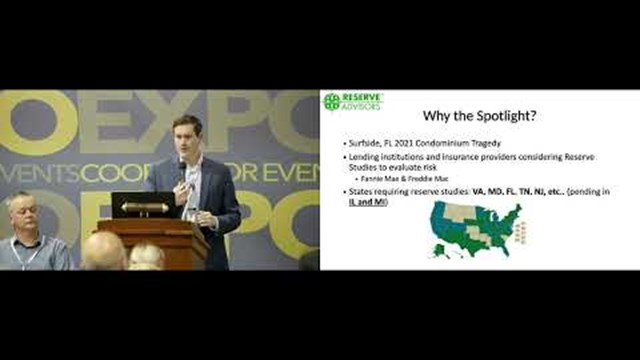Each year, boards are tasked with figuring out the costs associated with all aspects of their community’s operations, including any capital repairs or improvements they plan to undertake in the coming fiscal year, and then making sure the revenue is there to cover said costs. Even in the best of times it’s a balancing act, involving predictions, assumptions, and fungible pools of income alongside hard historical data, face values, and built-in escalations. And at the end of the process often comes the unenviable task of informing residents how much more they will need to pay the association or corporation each month to cover all of it.
In times of transition and upheaval (like now) the process takes on added complexity. Assumptions and predictions are thrown out the window. Reliable sources of revenue—like commercial rents or amenity fees, for example—are up in the air. Line items need to be added for expenses that didn’t exist even six months ago: personal protective equipment, digital body temperature gauges, and social distancing compliance monitors, for example. And those are just the ones that can be reasonably predicted six months into the COVID-19 crisis. If there is one word that seems to run parallel with coronavirus and its effects, it’s uncertainty.
Educated Guesses
Upheaval aside, however, the basics of budgeting remain the same. Communities must still meet all of their financial obligations to operate and insure their facilities; pay vendors, contractors, and lenders; and provide a safe and secure home for residents.
Many aspects of a budget are essentially fixed. Items like water and sewer costs, utility delivery, insurance premiums, payroll (especially where determined by collective bargaining agreements), and taxes not only are non-negotiable, they also tend to make up a large proportion of an association’s or corporation’s operating expenses.
For other recurring costs that are discretionary or can be reduced with some effort, boards must balance maintaining or enhancing the services their communities expect with the costs of those services. Boards—usually with support from their managing agents and financial advisors—have to use their best judgement about what their communities will require for a given year and the costs anticipated for those goods and services.
“Building a budget is really a bit of an art and science,” says Jim Stoller, president and CEO of The Building Group (TBG) in Chicago. “As I tell clients, a budget is not something that is cast in stone; it’s a good faith estimate of income and expenses. The world changes, and one has to adapt to the environment that we live in. But we can make educated assumptions based on facts and building conditions, reserve studies, and cost escalations. So it’s a balancing act between what residents want, what they need, and what they can afford.”
Even in affluent associations where keeping carrying charges as low as possible may not be a main consideration, boards still have to plan and prioritize based on expected cost increases like utilities and payroll, along with infrastructure and systems maintenance. And in the current environment, those priorities can be a bit mercurial. “What the current conditions have done to budget—that’s a big issue,” says Stoller. “We’ve had some buildings where some residents want to have a maintenance person standing by the front door polishing the door every time someone goes in and out, and there are other people who just say they don’t want to spend the money.”
Accounting for Crisis
At this point, says Paul Santoriello, president of Taylor Management in New Jersey, things are still too fluid to make any solid budget predictions or revisions. “In three months at least,” he says, “boards might be at a point where they can see where their arrears are, and what adjustments need to be made for projections going forward.” He is emphatic that they should not promise—or even consider—reducing or eliminating fees for amenities that have been forced to close, as this would wreak havoc on operational income levels that are already uncertain. What is certain is that the additional costs of more cleaning supplies, protective gear, equipment like foggers and sanitizing stations, thermometers, and other new necessities will need to be accounted for.
On the other hand, there might also be some cost reductions; Stoller notes that capital projects and construction not critical to building function have been put on hold in the buildings he manages, and it is as yet unclear when or in what capacity those projects will resume. If it’s reasonable to assume those projects won’t be occurring in the coming fiscal year, the projected costs associated with them could potentially be eliminated from the budget.
According to Jeffrey P. Roude, partner at accounting firm SaxBST in New York with many condos and co-ops as clients, boards should take a careful look at their budgets after they receive their June management reports and real estate tax bills, paying special attention to cash flows based on collections and expenditures since the onset of the coronavirus crisis. “Many co-ops and condos that rely on commercial income and flip taxes can find themselves far behind the projected income from their budgets,” says Roude, “and [might have] a shortfall in cash that is resulting in aging out of payments of unpaid invoices.”
Roude suggests three measures that boards in this position can consider if they want to avoid increasing maintenance or assessing their owners/shareholders right away for the shortfalls:
• Review the monthly escrows for real estate taxes, water, and insurance (whether required by the mortgagee or self-escrowing)—if any or all are overfunded, can the excess funds be transferred back into operations?
• If there are reserve funds generating interest income, consider transferring the interest to operations to help cash flows.
• If there are reserve funds, a loan from the reserves can be taken to carry operations for the rest of this year; repaying the loan could happen next year through a maintenance increase or assessment assuming the financial aspect of the world gets better then. The board would need to review if the reserve fund is self-imposed or required by the mortgagee and if permission is needed to accomplish this.
Roude notes that an issue many co-ops and condos face is that past years’ shortfalls are not considered or included in the current subsequent years budget, which can cause a further delay in paying invoices.
In terms of income, buildings and communities have been holding their breath to see how the pandemic will impact the collection of assessments and other fees. Each month tends to tell a different story, and seems to be case-specific depending on location, demographics, preparations, and communications. So far, Stoller says he has not seen any impact on collection of fees from residents, but commercial tenants have been gravely affected. While in his client communities commercial rent is not part of the associations’ income stream (those portions of the buildings he manages are separate entities from the co-op or condo portion), the demise of the businesses with which residential communities share space will likely have an impact, both financially and in residents’ quality of life.
Special Cases
Regardless of the larger economic and social landscape, any discussion of budgeting should include a caveat: For cooperatives and associations incorporated under various city, state, and federal housing programs, the accounting and reporting processes differ somewhat from those of a typical co-op or condo. In New York, these types of limited equity developments account for tens of thousands of units of housing for hundreds of thousands of people.
Charles M. Zsebedics is General Manager for the Amalgamated Housing Corporation and Park Reservoir Housing Corporation, in New York City, and explains some of these differences. With 274 units, Park Reservoir is the first Mitchell-Lama development in New York State; with nearly 1,500 units, Amalgamated Housing Corporation is the first and oldest Article 4 Limited Dividend co-op in the country. As a limited dividend cooperative, Amalgamated is required under the New York State Homes and Community Renewal (NYSHCR) budget process to provide a two-year budget. “Therefore,” says Zsebedics, “when we received our approval for an increase in August of 2019, it was for the period up until August 2021. That is the earliest date when Amalgamated can ask for another increase—unless, for example, we decide to refinance our mortgage before then, and would have to consider an earlier increase.
“Most HCR supervised buildings have to pursue the HCR’s Budget Rent Determination process,” he continues, “which under normal circumstances can take anywhere from six to eight months to complete, including an HCR carrying charge hearing with shareholders, which requires testimony from shareholders on the pros and cons of any increase and how it will affect them and the various income groups within the co-op.” Depending on this provisory relationship precludes limited-equity co-ops from the nimbleness and flexibility that other associations might enjoy in their budgetary processes.
Thus, when unanticipated global events such as a pandemic upend these communities’ fiscal assumptions, it leaves them in limbo, with little to no control. “Obviously, our crystal ball wasn’t working in early 2019,” quips Zsebedics, “and like most co-ops, we could never have anticipated the turmoil that would ensue from this pandemic. … We continue to watch closely, because unlike free market co-ops, state-supervised co-ops can’t decide they need an increase in July and then have it implemented by August or September.”
For its part, Amalgamated has been closely monitoring its budget and, as Zsebedics says, “holding [its] own.” “Our income stream remains relatively stable despite the obvious challenges,” he reports, “and our finance manager, Wendy Cosgrove, along with [board treasurer] Ed Yaker and president Howard Kamiel, have been extraordinary in handling the pressures of monitoring our budget, dealing with various financial issues, and trying to anticipate any budget problems before they can arise.”
Notably, he adds, NYSHCR has been diligent in its communications with the co-op, requesting frequent updates to the state of both its revenues and arrears. “I suspect that they may be monitoring whether the NYSHCR would need to implement some additional financial program for their affordable housing portfolio should some or many fall into major budget deficits,” offers Zsebedics. Collecting this data could be an effort to “ensure we—and I am sure other supervised properties—don’t fall so far into financial difficulties that makes it much more difficult to dig ourselves out of a large deficit,” he says.
Waiting for Government Response
There’s another question keeping boards and their budgets in a state of limbo: whether they, their commercial tenants, and/or their individual residents will be eligible for—and receive—any type of assistance from the federal government in the wake of the pandemic. Small businesses that have received loans via the Payment Protection Program (PPP) can apply those funds to their rents, allowing at least some commercial tenants to stay current on their payments … for the time being. And residents who are employees of those recipient businesses might now have a paycheck when they didn’t a month or two ago … again, as long as their employers can continue to afford payrolls with those loans, or from their businesses reopening or resuming normal function as state and local restrictions ease.
Co-ops and condos themselves have been in a type of Twilight Zone when it comes to PPP access. This publication has reported on the struggles and successes some associations have had when it comes to loans and grants approved under the CARES Act. (See, for example, www.cooperator.com/article/co-ops-condos-hoas-ppp-loans.) In a May 26 letter, U.S. Rep. Eliot Engel of New York, along with U.S. Sen. Chuck Schumer and U.S. Rep. Alexandria Ocasio-Cortez, appealed directly to U.S. Treasury Secretary Steven Mnuchin and SBA Administrator Jovita Carranza, claiming that the SBA had issued “conflicting guidance” over PPP eligibility for co-ops. Engel, whose congressional district includes the northern part of the Bronx and parts of Westchester County, including Yonkers and New Rochelle, said in a previous letter on the subject, “[C]o-operatives themselves—which have employees and operating expenses just like any small business—should be eligible for the same relief made available to other small businesses. That includes the Paycheck Protection Program and other loans administered by the Small Business Administration.”
Also up in the air is the exposure to legal liability that co-ops and condos may face as both employers and housing providers. As reopening plans proceed, boards are also reopening amenities that were closed or restricted to prevent the spread of coronavirus—or are putting plans in place to do so. The question on everyone’s mind is whether opening—or not opening—these spaces and services will subject them to lawsuits either alleging negligence or alleging denial of rights. With so many nuances to such claims and little legal precedent to rely on, boards may have to assess whether their exposure rises to the level of needing a specific reserve fund for legal defense and fees.
In Conclusion
In the fall, when most associations will be approving their budgets in the approach to the end of their fiscal years, perhaps there will be a little more certainty around the many considerations that the pandemic has raised. On the other hand, the unrest around social inequalities and policing, along with the potential for upheaval around the presidential election in November, might usher in changes and considerations as yet unforeseen. But even in what we used to understand as ‘normal’ times, a budget is ultimately a best guess—and change is a given, no matter what the circumstances.
Darcey Gerstein is Associate Editor and a Staff Writer for The Chicagoland Cooperator.










Leave a Comment